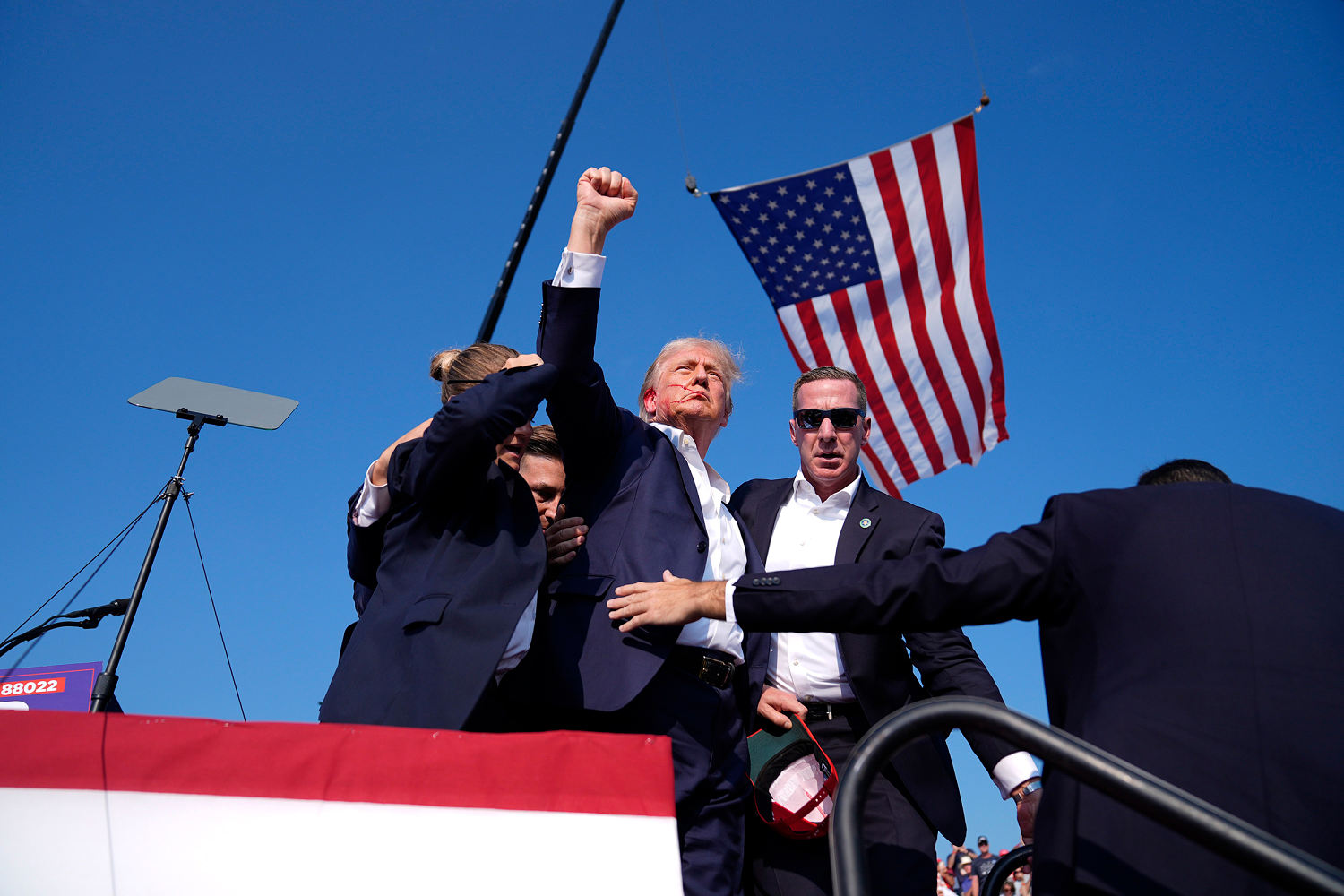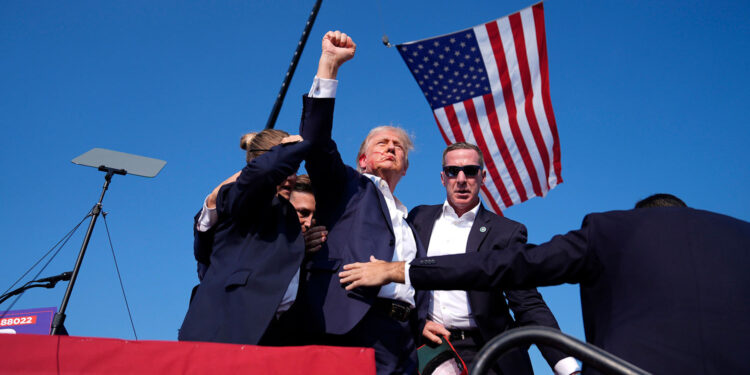
BUTLER, Pa. — A day after the shocking assassination attempt on former President Donald Trump at a campaign rally in Pennsylvania, the nation is left wondering whether the political polarization that has gripped the country has grown too severe.
Condolences and calls to turn down the rhetorical heat poured in from across the country and the world as leaders of all political stripes expressed shock and horror at the first shooting of a U.S. president since Ronald Reagan was nearly killed more than 40 years ago while leaving a hotel in Washington.
“We’re all Americans, and we have to treat one another with dignity and respect,” House Speaker Mike Johnson said in an interview Sunday on NBC News’ “Weekend Today.” He went on to echo the blame that Trump allies are placing on President Joe Biden, who used the word “bullseye” on a campaign call with donors last week.
“I mean, I know that he didn’t mean what is being implied there,” Johnson said Sunday about Biden’s comments, but added, “That kind of language on either side should be called out.”
Violent rhetoric has become a more familiar part of political campaigns in recent years, as has sometimes violent clashes between protesters, counter-protesters and police. But assassinations have not been seen in American politics for decades.
Trump, who was hit in the ear by a bullet, was released from the hospital Saturday night, while two spectators who were seriously injured remain hospitalized. Another spectator was killed.
“In this moment, it is more important than ever that we stand United, and show our True Character as Americans, remaining Strong and Determined, and not allowing Evil to Win,” Trump wrote on the website Truth Social on Sunday morning.
Witnesses at the rally described a chaotic scene in the moments after the shooting.
In the front row of the rally, attendees heard a series of pops and saw Secret Service agents jump on the stage. One, who identified herself as Erin, told NBC News that she saw blood on Trump’s ear. She did not fear for her own safety, she said. “We were only concerned about him,” she said, referring to Trump.
Investigators have yet to say how the shooter, identified by the FBI as 20-year-old Thomas Matthew Crooks of Bethel Park, Pennsylvania, was able to get close enough to shoot at Trump.
Police have also not suggested a motive for Crooks, who was killed by police moments after he opened fire. Voter registration records show that Crooks was a registered Republican, but so far, authorities have offered no political motivations for the shooting.
Anthony Guglielmi, chief of communications for the U.S. Secret Service, pushed back on assertions that Trump’s campaign had requested but been denied additional resources.
“There’s an untrue assertion that a member of the former President’s team requested additional security resources & that those were rebuffed,” he posted on X.
“This is absolutely false. In fact, we added protective resources & technology & capabilities as part of the increased campaign travel tempo.”
The assassination attempt has upended a presidential campaign that was already in the grips of tumult, as fellow Democrats called on Biden to step aside after a debate performance last month left many wondering about the 81-year-old’s mental and physical fitness.
The Republican National Convention is set to begin Monday to formally nominate Trump and officials say the event will go on as scheduled, with enhanced security measures.
Still, Trump campaign officials advised staff to avoid the campaign’s offices in Florida and Washington, D.C., until their security can be assessed.
“It’s sick. It’s sick. It’s one of the reasons we have to unite this country,” Biden said in remarks late Saturday night, before he was able to speak with Trump. “We cannot condone this.”
Former presidents Barack Obama, George W. Bush and Bill Clinton released similar statements condemning the attack and calling for unity, while foreign allies like new U.K. Prime Minister Keir Starmer said, “Political violence in any form has no place in our societies.”







